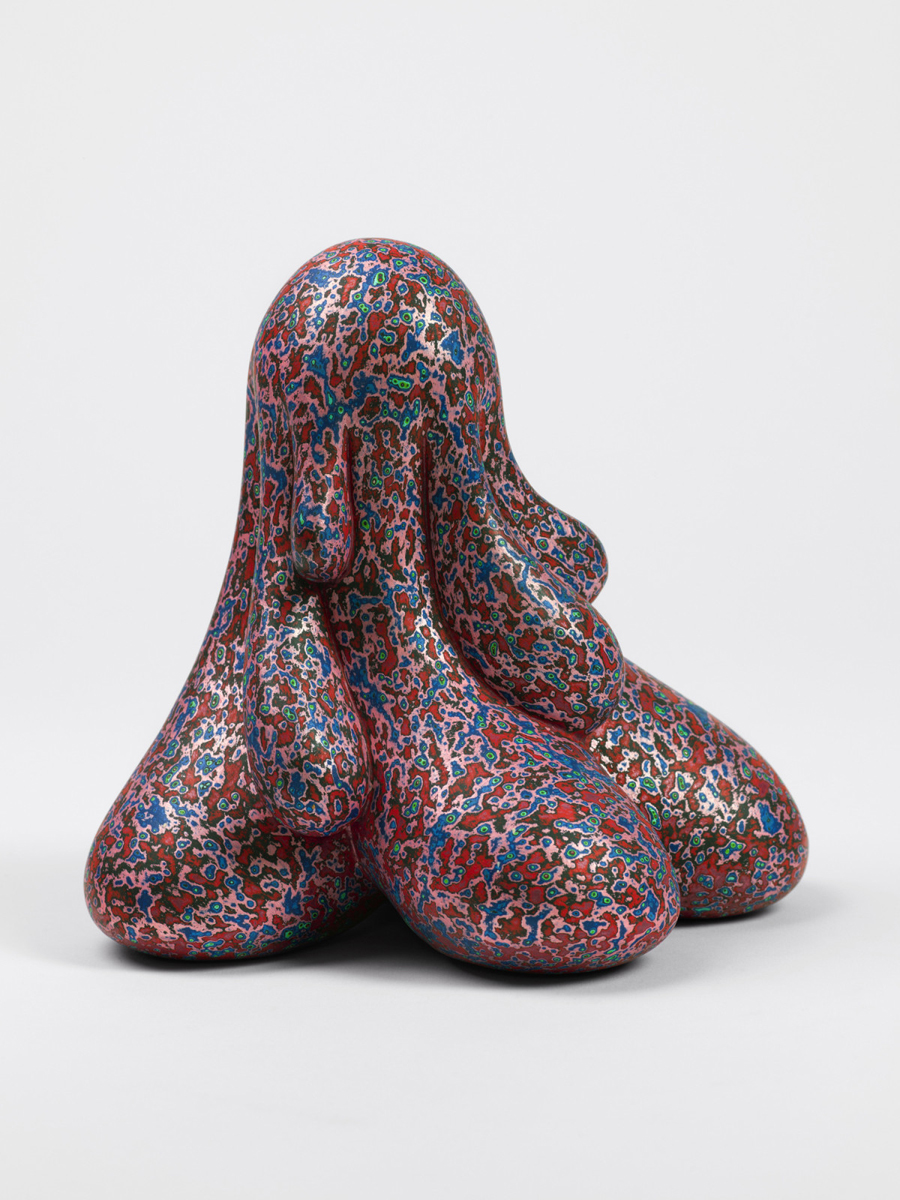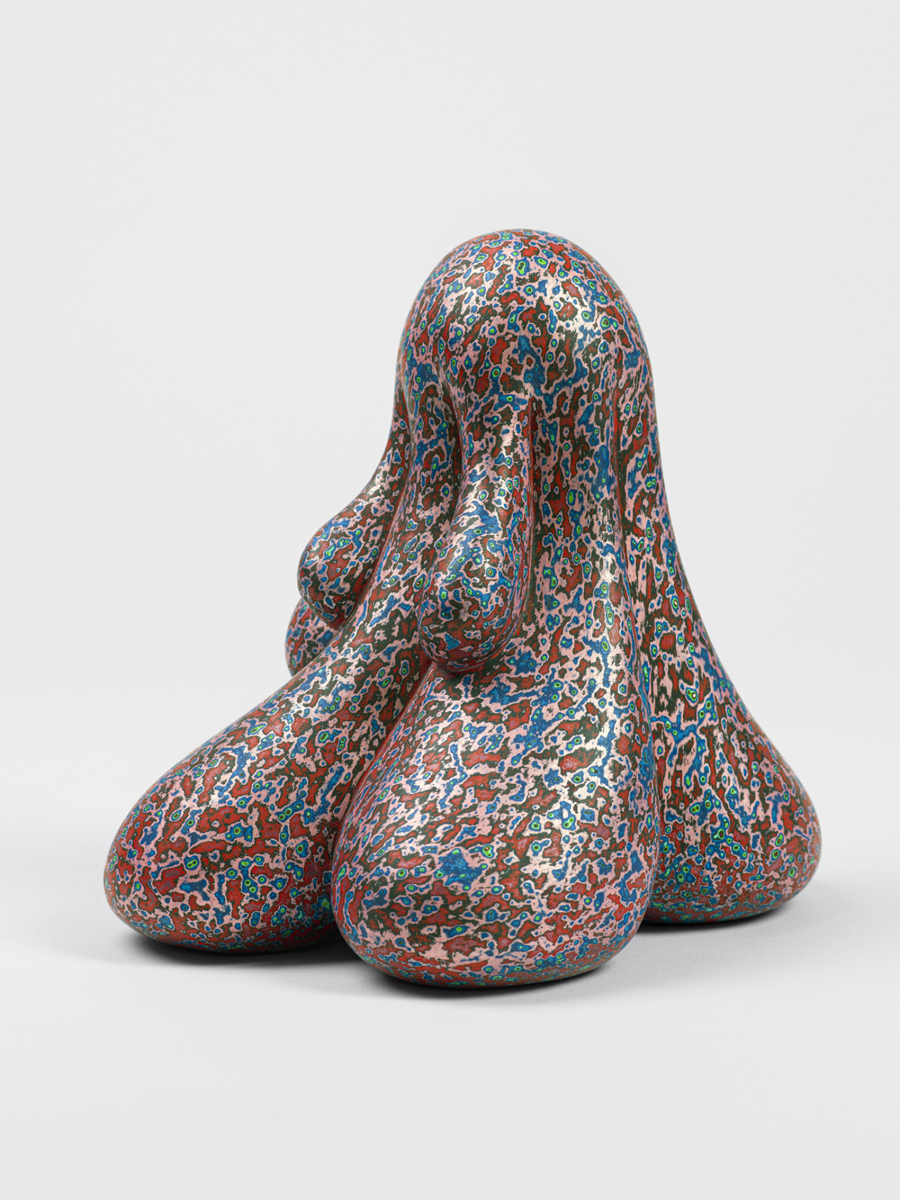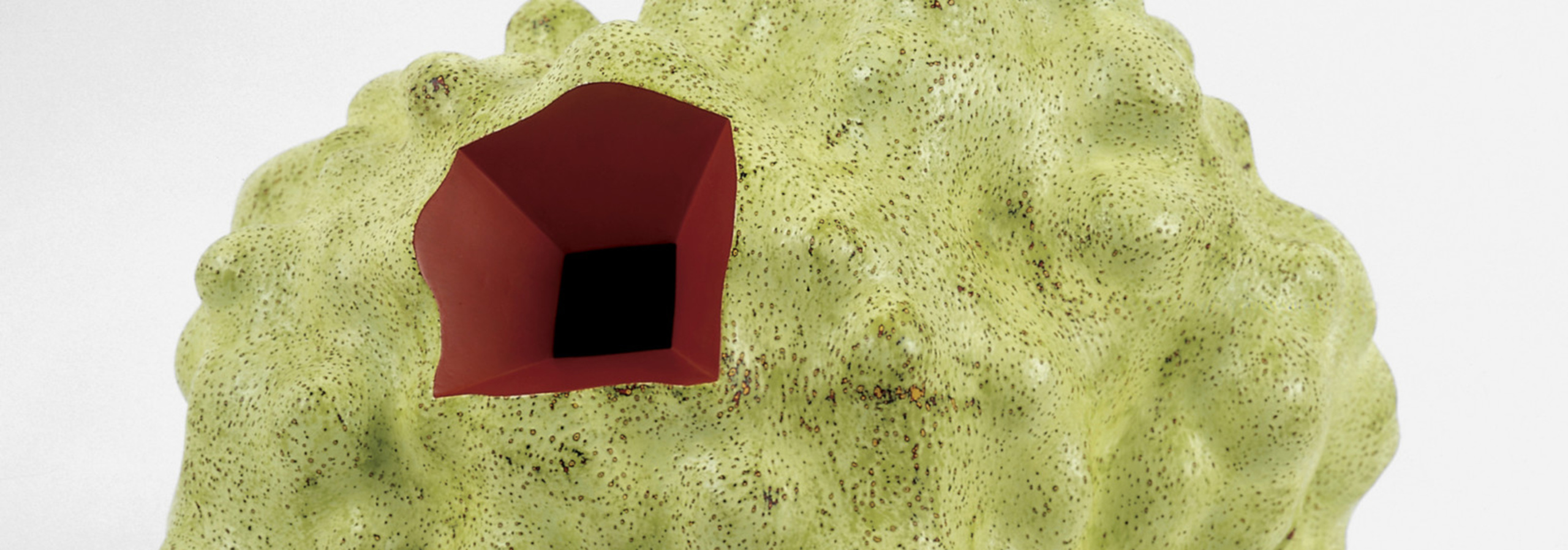
Ken Price, Pastel ⏤ detail, 1995, acrylic on ceramic. Courtesy the artist and Matthew Marks
Ken Price
b. 1935 in Los Angeles, CA, USA
d. 2012 in Arroyo Hondo, NM, USA
d. 2012 in Arroyo Hondo, NM, USA
Ken Price was a pioneering American artist known for his innovative ceramic sculptures that redefined the medium. Studying at Otis College of Art and Design in the late 1950s, he was influenced by sculptor Peter Voulkos, who argued that ceramics deserved recognition as a legitimate sculptural medium. However, Price took this idea in a unique direction, contrasting Voulkos’s large-scale, abstract forms with small-scale, brightly colored, low-glaze sculptures. His early works were playful, humorous, and irreverent, incorporating elements from graphic design, fashion, folk art, and science fiction. Price often pushed the boundaries of ceramic tradition by applying spray lacquer and paint to his pieces, an approach that was considered sacrilegious by ceramic purists. His work evolved over time, moving toward surreal, extraterrestrial forms in the 1960s and 70s, before entering a “golden period” in the 1990s, where he created intricate surfaces sanded through layers of contrasting paint, resulting in psychedelic, concentric rings of color.
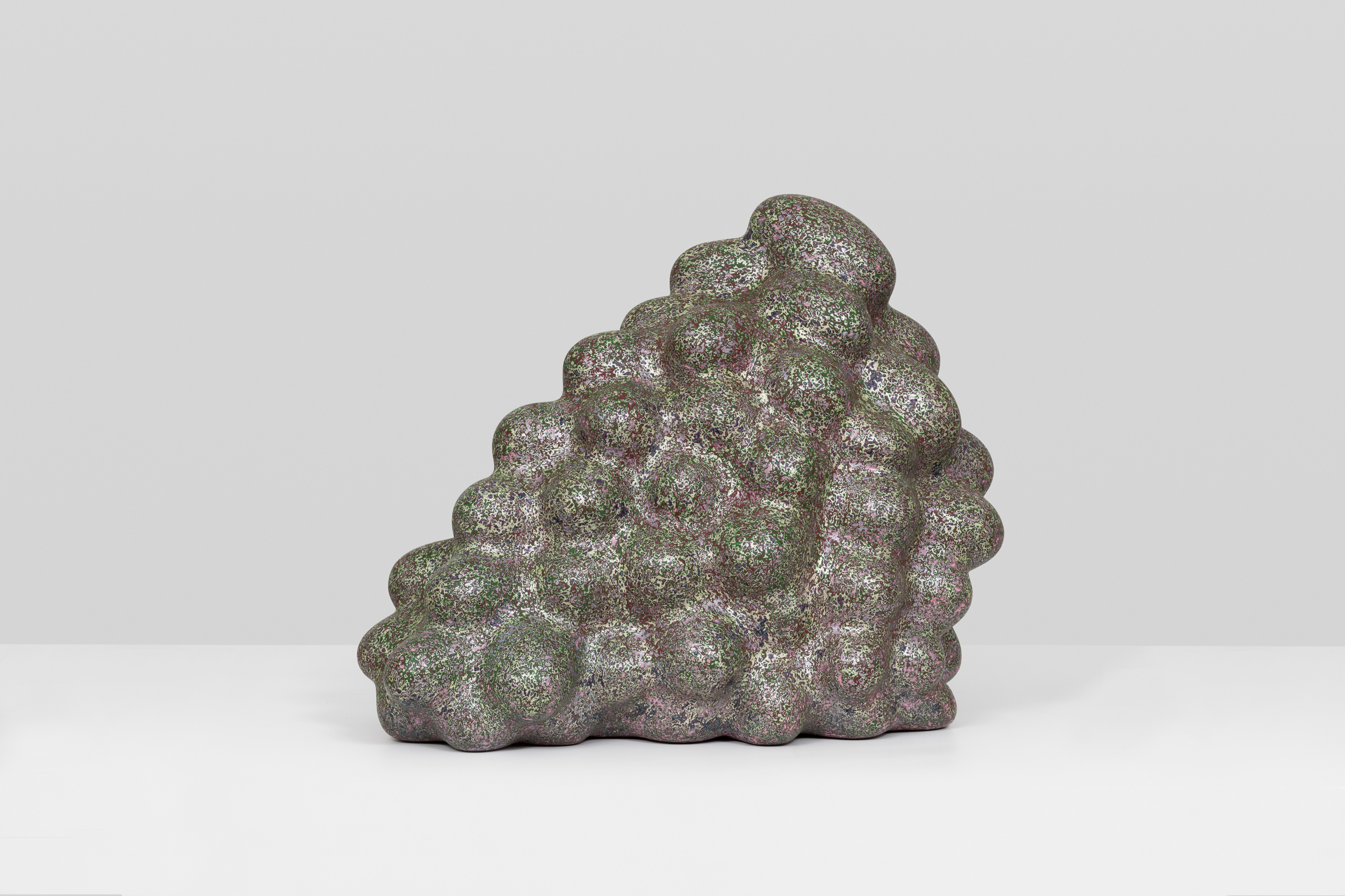
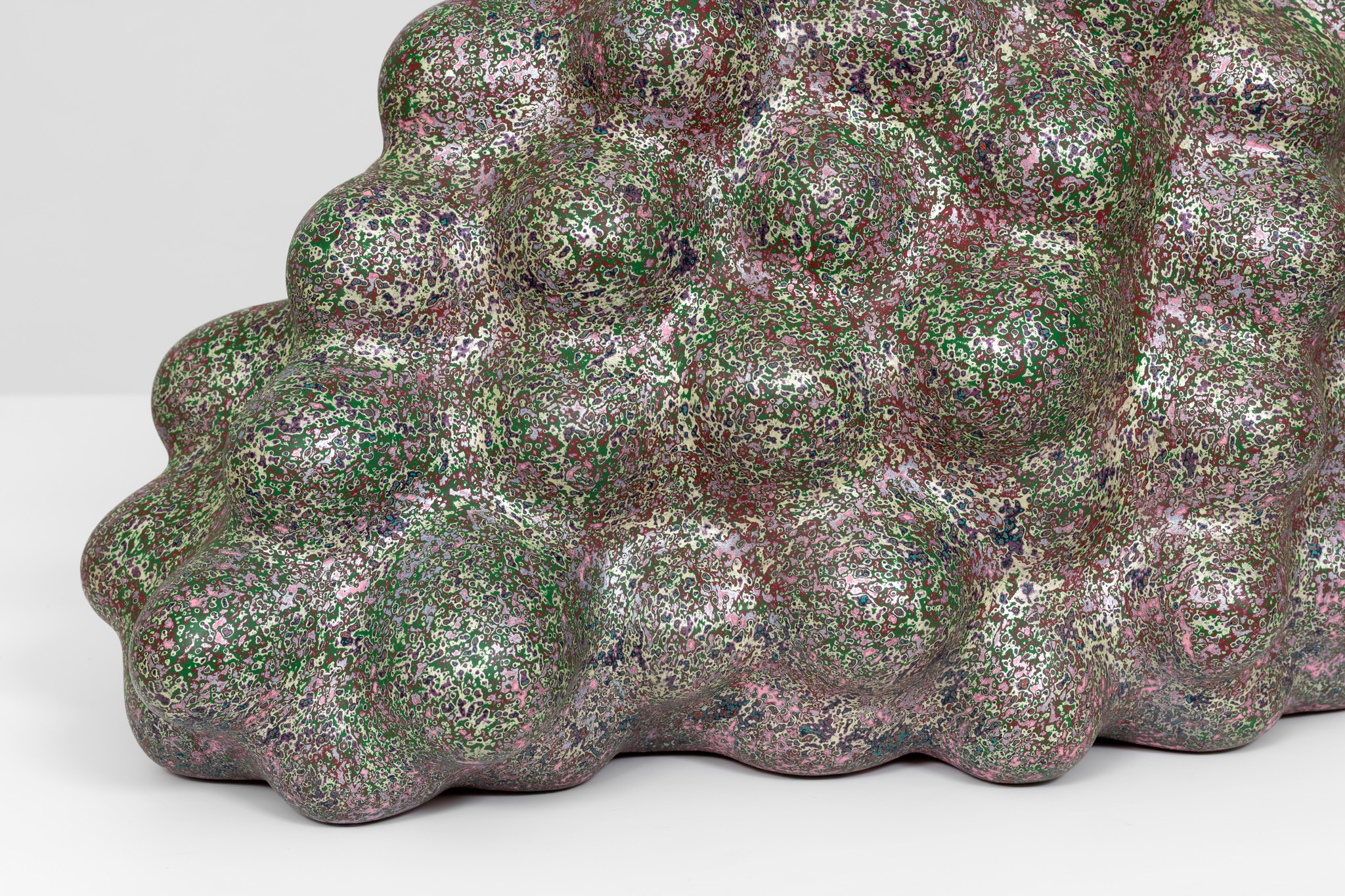
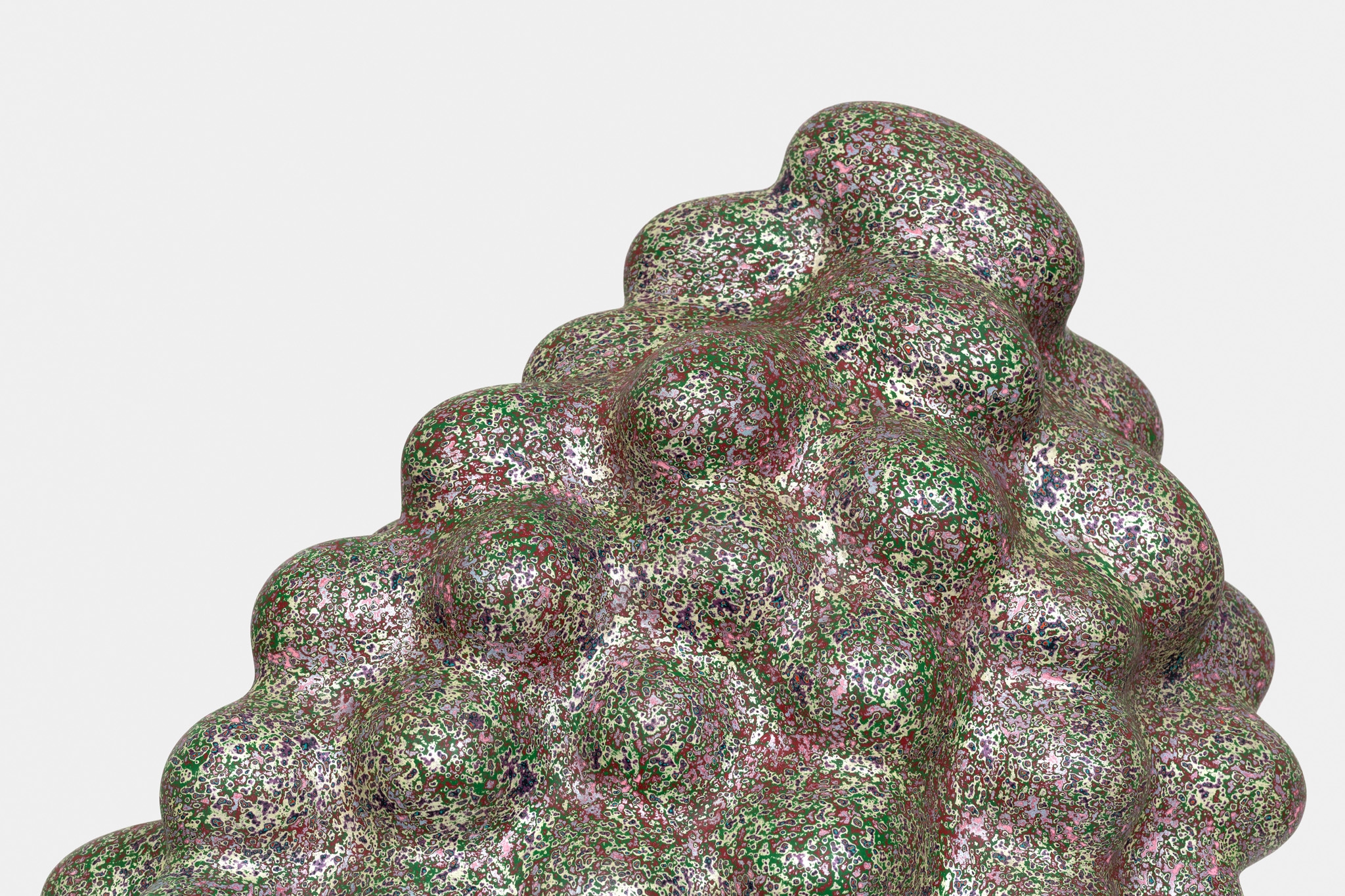
Throughout the 1960s and 70s, Price’s work – while often functional – moved increasingly towards an aesthetic of surrealism, of extraterrestrial strangeness. In the 1980s he created pieces that resembled rough hunks of clay, cut to reveal smooth and brightly coloured interiors. These works opened the door to the sculptures for which he is today most highly regarded: pieces made from the 1990s on in which he sanded through layers of contrasting paint, creating an almost psychedelically intricate surface mottled with miniscule, concentric rings of colour.
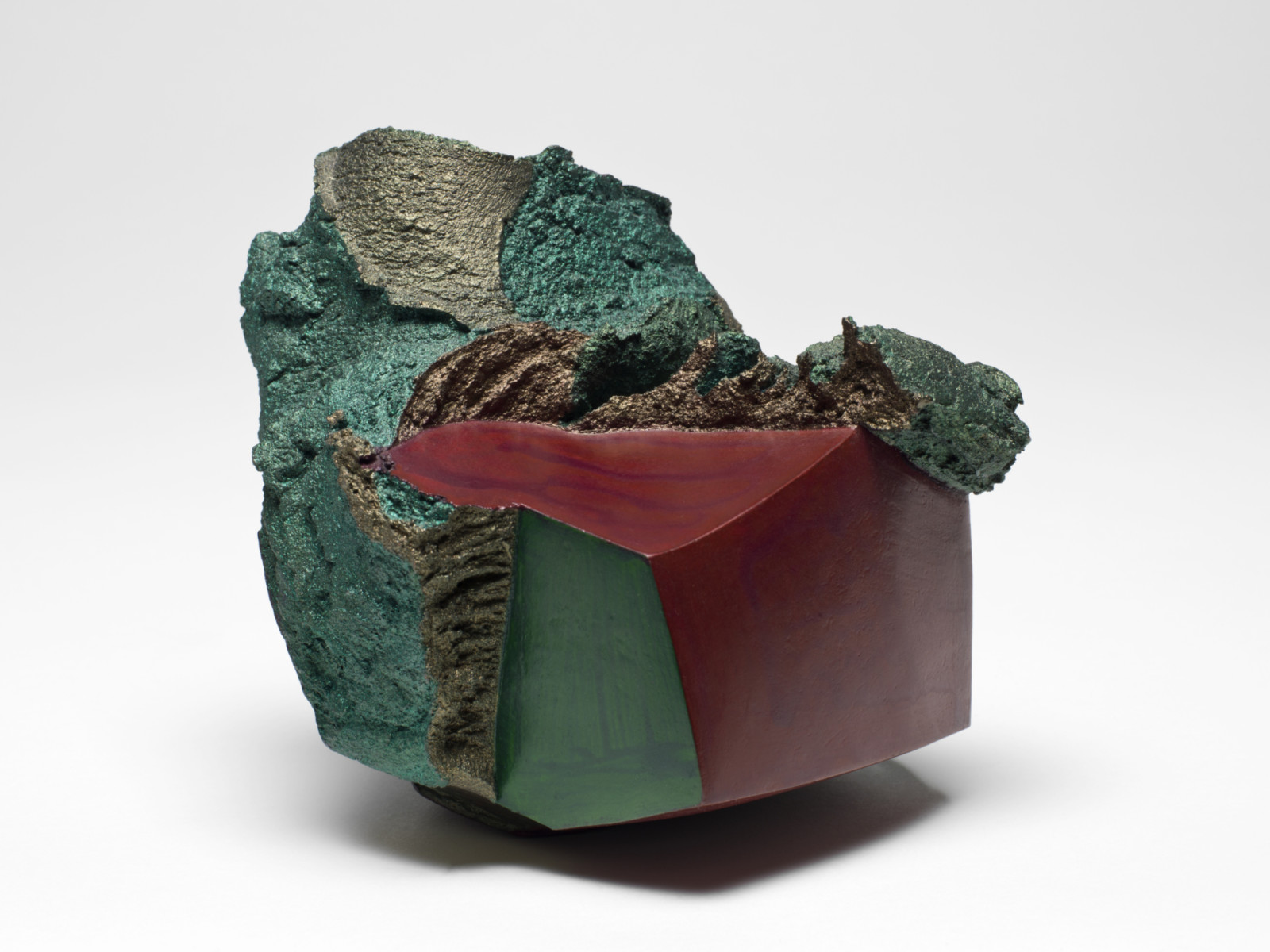
Ken Price, Chinese Block, 1984, fired and painted clay, 11 × 13 × 11 cm
Courtesy the artist and Matthew Marks
Courtesy the artist and Matthew Marks
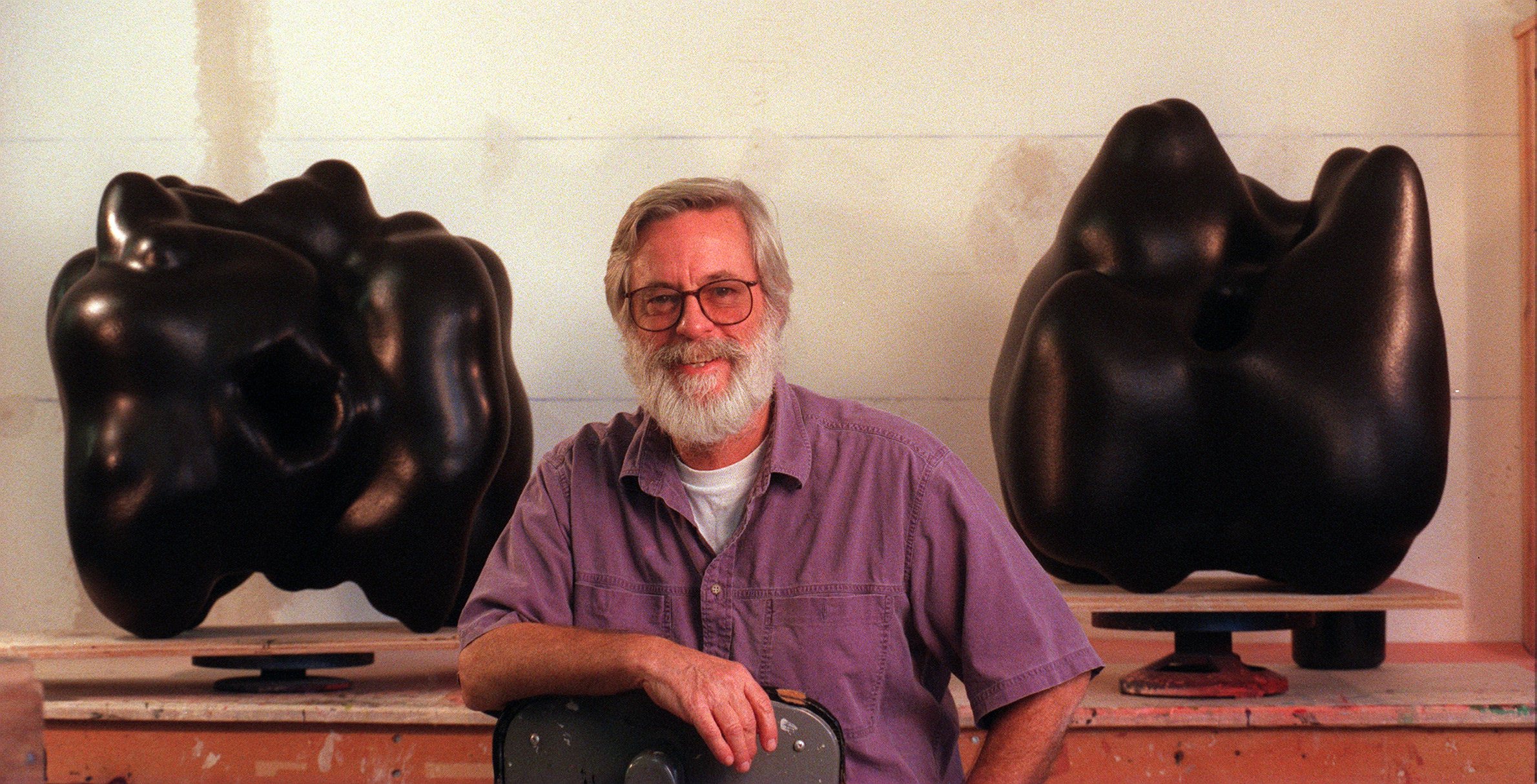
Los Angeles Times, Photographer Con Keyes
Ken Price’s work is held in numerous prestigious institutions, including the Los Angeles County Museum of Art, the Metropolitan Museum of Art in New York, and the Museum of Modern Art in New York. His enduring influence continues to inspire and challenge perceptions of ceramic art. In
We thank Xavier Hufkens Gallery for their kind collaboration on the group show Once The Block Is Carved, There Will Be Names.
